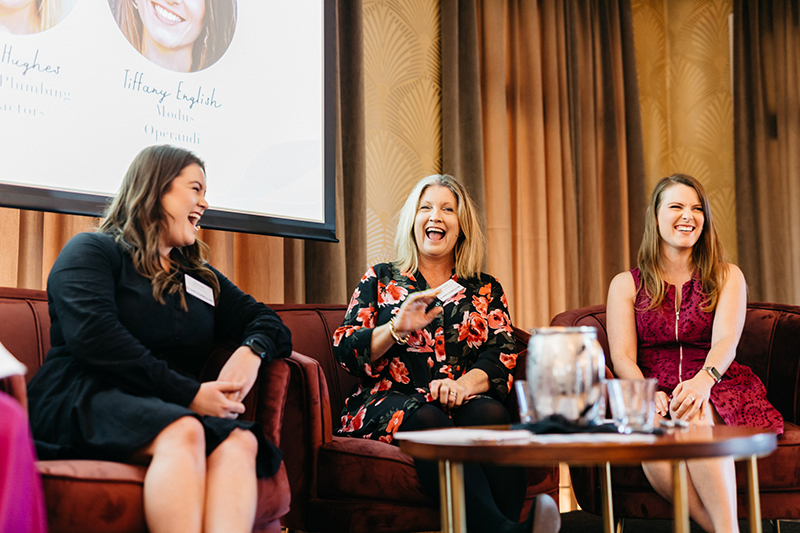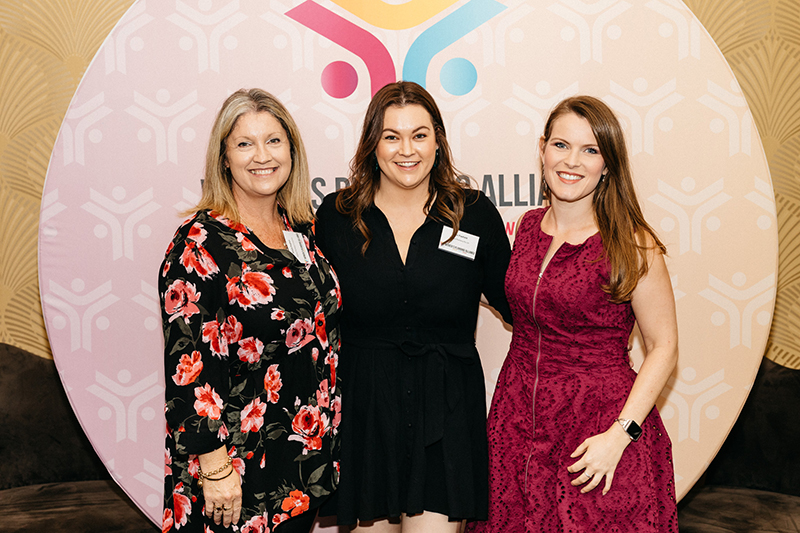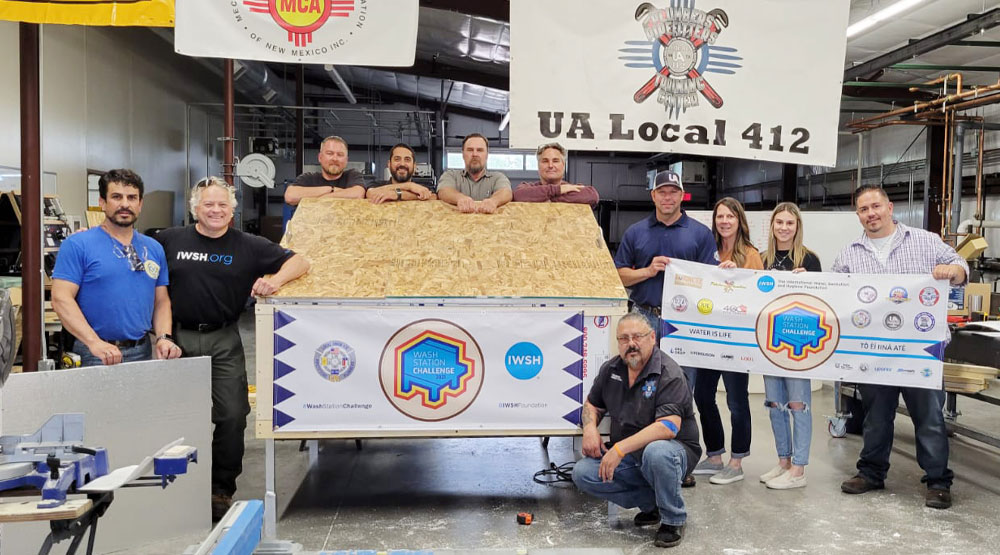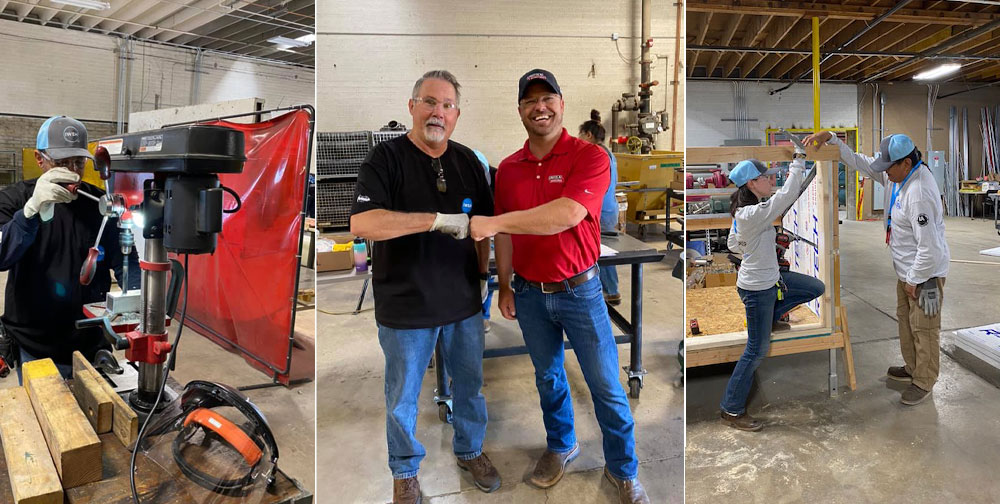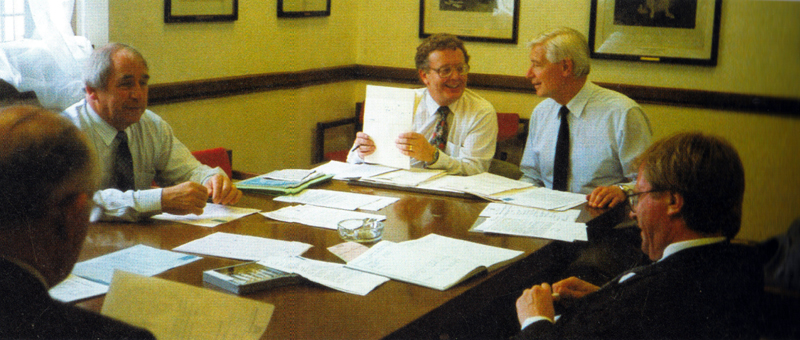
|
Andy Watts at a meeting of the Parliamentary Plumbing Group in 1993. Image courtesy of www.ciphe.org.uk It was with great sadness that the WPC learned of the passing of one of its former board members, Andy Watts. Andy passed from severe respiratory difficulties on June 15. He was 76. Andy started as an apprentice in the family business, Watts Brothers, based in Chard, Somerset. Andy completed his technical training at Taunton Technical College and rose quickly in the plumbing world. At 25, he succeeded Jimmy Haig as executive director of the Institute of Plumbing (IoP) and was at the helm for some 35 years.
Andy was also a member of The Worshipful Company of Plumbers, which wrote a wonderful tribute to him that can be read here: https://www.plumberscompany.org.uk/liveryman-andy-watts-mbe-a-tribute/ Andy was an active ambassador of plumbing for more than four decades and touched the lives of many in the industry. “I will be forever grateful to Andy for all the support and encouragement he gave to me and especially with my ‘apprenticeship’ during my early years at the Institute,” said Kevin Wellman, CIPHE CEO in CIPHE’s tribute to Andy. “He worked tirelessly to promote standards in the public interest and in the ongoing campaign to see registration for those involved in the plumbing and heating industry. The outpouring of grief across the world reflects the impact that Andy made globally and reaffirms that he will never be forgotten.” Other’s sharing their memories: Stuart Henry, Past Chairman of the WPC 2002-2005 “I had the great pleasure of working closely with Andy Watts on a number of important matters facing the global plumbing industry while we both served the World Plumbing Council. Andy had a keen vision that was crafted throughout his 40 years of service, 35 of them as CEO to what was then the UK Institute of Plumbing. Andy will be missed and many throughout our great trade will be benefactors of his years of selfless service to our industry. He was an ambassador who always had a clear sense of direction. And he was never reluctant to raise his hand if something needed to be done. And, of course, Andy was a founding member of the WPC RWC — the Red Wine Club. One can imagine the importance of this club and what it meant to those of us who were volunteering in our service to the WPC and our industry. I’ll miss Andy.” GP Russ Chaney, Past Chairman of the WPC, Executive Board Member 2001-2013 “Andy Watts was a beacon of knowledge and a keen motivator as he inspired me to become more active in giving back to our industry. He led many efforts in collaborating with international organizations like the WHO and WorldSkills International. Andy was involved in assessing what occurred in Hong Kong with the outbreak of the 2002 SARS Coronavirus. And he was the architect of a 1996 through 2006 effort by the WPC to update what is now known as Health Aspects of Plumbing, an important WHO/WPC publication that sets out our industry’s contribution in protecting public health and safety. I will miss the many opportunities to collaborate and to share experiences with Andy as we not only collaborated and learned from one another, but we also became dear friends. Friends are hard to come by, though Andy made it easy. I vividly recall the first time I met Andy at a WPC meeting shortly after I joined IAPMO. I was sitting alone waiting for the other meeting attendees to come down to the hotel lobby where I had been sitting almost an hour as I was so anxious to be involved in the WPC. Andy came over and I instantly knew I had a friend for life! Rest in peace, my dear friend, as our industry has lost a great contributor who had a keen sense of right and wrong. And I have lost a very dear friend. Rest in peace, Andy.” There will be a live streaming of the service held in honor of Andy on 23 July 2021 at 12:00. Details follow: Website: https://www.obitus.com/
IN THE SPOTLIGHT: BUILDING RESILIENCE AND ADAPTING TO CHANGE
|
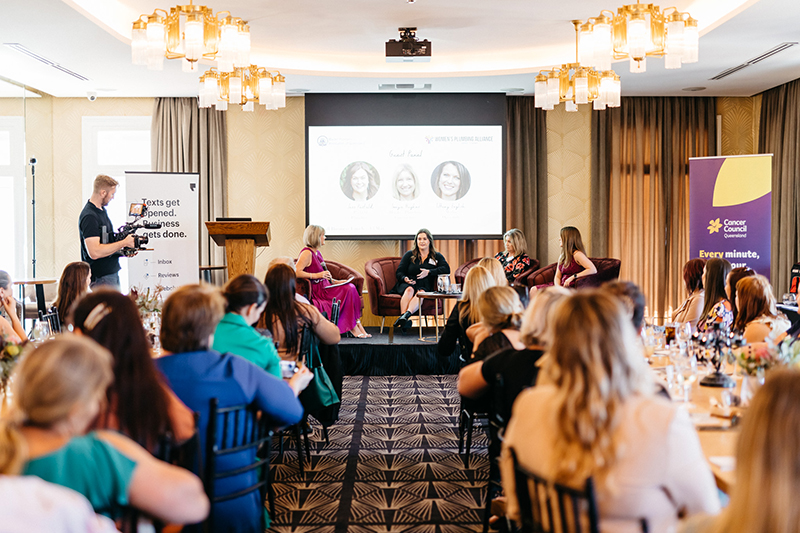 |
Resilience is the ability of a business to withstand, adapt, and thrive in the face of shocks that are internal and external, as well as known and unanticipated. Submitted by Master Plumbers’ Association of Queensland (MPAQ) On Thursday 13 May, Master Plumbers’ Association of Queensland (MPAQ) and the Women’s Plumbing Alliance hosted their annual Small Business Month Lunch, where a panel of influential female members entered the spotlight. They shared their insights into what makes a plumbing business resilient and adaptable. Here’s a snapshot of what they had to say. Jess Pasfield, Pasfield Plumbing What does being in the plumbing industry mean to you? How did you get into this industry, and what inspired you to stick around? What is resilience to you, and how do you build it? In the past, when a difficult situation has come up for your business, how have you overcome it, did you grow from it, and what was the biggest lesson you learned? The biggest lesson, which I’m just learning now, is to be kind to myself. It is very easy to put unrealistic pressures and timelines on myself, I am learning to minimize this. With plumbing businesses being so busy at the moment and with staff hard to come by, how do you deal with the potential burn-out of staff or yourself?
Sonya Hughes, Hughes Plumbing Contractors What does being in the plumbing industry mean to you? How did you get into this industry and what inspired you to stick around? What is resilience to you, and how do you build it? Was there a difficult time or situation that your business faced? How did you overcome it? How did you and your business grow because of it? What was the biggest lesson that you learnt? With plumbing businesses being so busy at the moment and with staff hard to come by, how do you deal with the potential burn-out of staff or yourself?
From left to right: Sonya Hughes, Jess Pasfield, and Tiffany English Tiffany English, Modus Operandi How are you involved in the plumbing industry? What is resilience to you, and how do you build it? What are some of the issues that you have seen the plumbing businesses you work with face? How would you recommend businesses overcome difficult situations to help their business grow? What should businesses do to deal with the potential burn-out of staff?
RPO, IWSH BEGIN WORK TOWARD ENHANCING WASH SERVICES IN RWANDA
Submitted by the Rwanda Plumbers Organization (RPO) The Rwanda Plumbers Organization (RPO) and The International Water, Sanitation and Hygiene Foundation (IWSH) have together begun their work to provide enhanced WASH services in Rwanda, following a memorandum of understanding (MOU) signed in March, marking World Plumbing Day 2021. RPO and IWSH are now working toward a pilot project renovating toilets at the Munazi Primary School. Meetings with local authorities and community partners have been held, with further feasibility and scoping completed through March-July. The project is now in the design and pricing phase, with construction and renovation targeted to take place October-December. This project also intends to promote the need for development of Rwandan plumbing standards. “It is a pilot project between both parties that we hope to be very successful so that we may do many, bigger projects together here,” said RPO Coordinator Jean Claude Twagirimana. “We thank the IWSH management team and all the people who spend their time and provide financial support to keep the plumbing industry growing all over the world.” The RPO had planned a plumbing seminar in June, but due to COVID-19 restrictions it has been cancelled and shifted to next year, if protective measures will allow it.
|
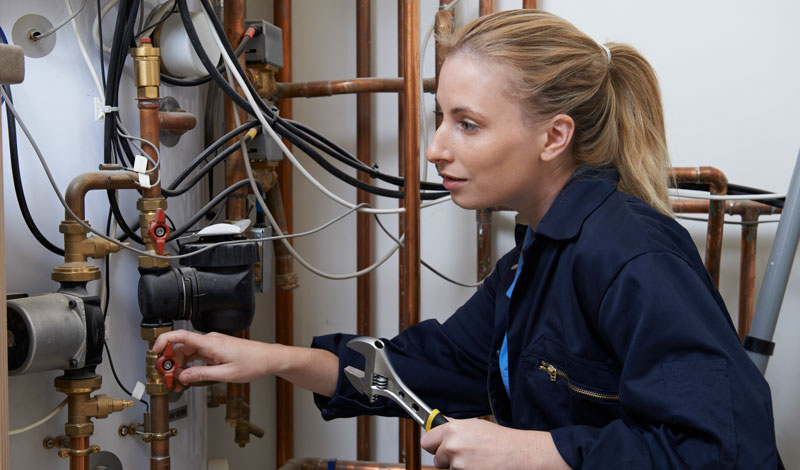 |
Submitted by Adam Mason, a 6G attested TIG and SMAW pipe welder, welding instructor and blogger. He loves to help people find their way in the welding trade by sharing his knowledge and experiences online. Skilled trades are an important part of our society as a whole. It impacts the daily lives of people as without it we wouldn’t have some commodities that greatly improve our standard of living. When it comes to the representation of women in skilled trades, they are greatly undervalued and underrepresented. Studies have shown that whenever women participate in some kind of labor force it has a great impact on the economy and the GDP. Women actually represent more than half of workers in certain industries, according to the U.S. Bureau of Labor Statistics. However, when we apply it to skilled trades, the number of women employed in those industries is far lower. Today, we see a lack of representation of women in several spheres of our society. Construction, manufacturing, plumbing, welding, mining, etc., are just a few that we care to mention. Women in skilled trades are in demand and represent an untapped potential that should be greatly reconsidered. Women in Construction Trades The most recent changes happen during the period between 2017 and 2018 when the percentage of women in the construction trade jumped by 17.6%. However, as a whole, the numbers are still far less than you would expect. Women in the Plumbing Industry According to the U.S. Bureau of Labor Statistics, only 2.5% of women were working as plumbers back in 2010. At the same time, the industry is predicting a 75% retirement rate among current workers. A shortage of plumbers is more than likely going to happen in the years to come. So employing women could be the answer. It is still challenging for women to become a part of an industry that is very much male-dominated. However, with an average salary that goes up to US$56,486 a year, you can see why it could be attractive to join. Women in Welding Currently, the welding force in the United States accounts for 5% of women employed. The most significant increase of women welders was seen during a three-year period between 2016 and 2019 when the number rose from 4,100 to 5,300. Women in welding are still searching for their place, but it seems that good things are up ahead. There are plenty of examples that confirm why women are equal to men welding and it doesn’t always come down to physical attributes. One of the main incentives for women to pick up welders is the wages as Welders, Cutters, Solderers, and Brazers earned US$40,970 in 2015 alone. The Global Skilled Trades Shortage A large multi-global analysis supports this problem as it predicts that by 2030 we are going to be facing a shortage of 85 million skilled trade workers. This could translate to an US$8.5 billion loss in annual revenue. Most of these problems and shortcomings could be avoided by allowing more women into the trades. Challenges that Women Face in Skilled Trades However, there are many other things that could be problematic for women to join trades. Coworker acceptance is still very much prevalent as well as hazing. There is an increasing concern about job security as well and fear of being laid off. Benefits for Women Working in Skilled Trades If the trends of losing skilled professionals continue, job availability and job security are another reason for women to look for when joining trades. Some of these jobs, although harder, can provide a better living for a woman and her entire family. Finally, women working in trades can become a role model for others that want to join. It could lead to a sustainable formula where all will be viewed as equals.
|
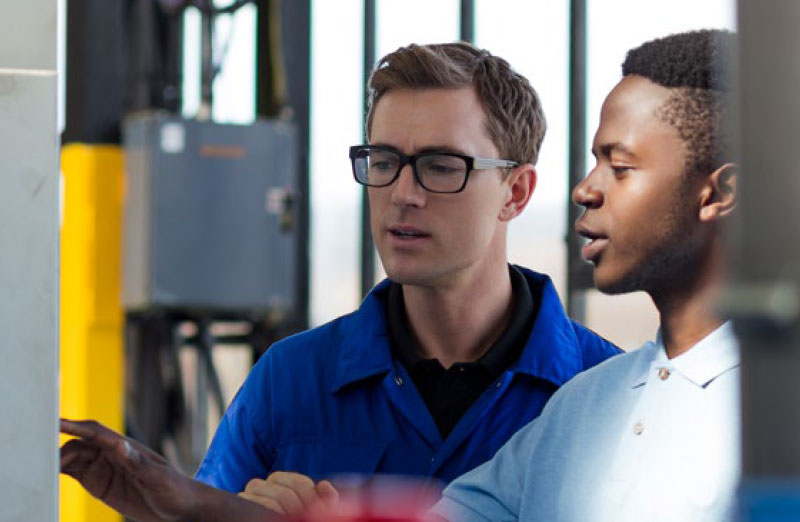 |
Submitted by The Chartered Institute of Plumbing and Heating Engineering (CIPHE) The Chartered Institute of Plumbing and Heating Engineering (CIPHE) has launched its new manifesto, calling on parliament to understand the huge role the plumbing and heating engineering community plays in the success of the United Kingdom. “As a living document, the CIPHE’s manifesto was always designed to move with the times,” said Kevin Wellman, CIPHE CEO. “While the challenges of a global pandemic caused by coronavirus have shifted governmental priorities significantly, it has also emphasized the importance of the industry as we enter the road to recovery. Now is the time to build upon this newfound status to help shape government policy. “This much expanded document is part of that aim, seeking to give parliament an insight into how the plumbing and heating industry underpins many key areas of government policy — health, housing, energy, environment and education. As we navigate this period of upheaval and change, the UK is going to need skilled, qualified and competent engineers, in all disciplines, to achieve its domestic and international aims. “As the professional body for the sector, and a registered educational charity dedicated to protecting the public health, the Institute is uniquely placed to give a voice to the industry, while upholding the interest of the general public, on matters that affect the very health and wealth of the nation.” You can download the CIPHE manifesto at www.ciphe.org.uk/manifesto2021.
NATIONWIDE ‘WASH STATION CHALLENGE’ TO PROVIDE NEW HAND-WASHING FACILITIES TO NAVAJO NATION COMMUNITIES
|
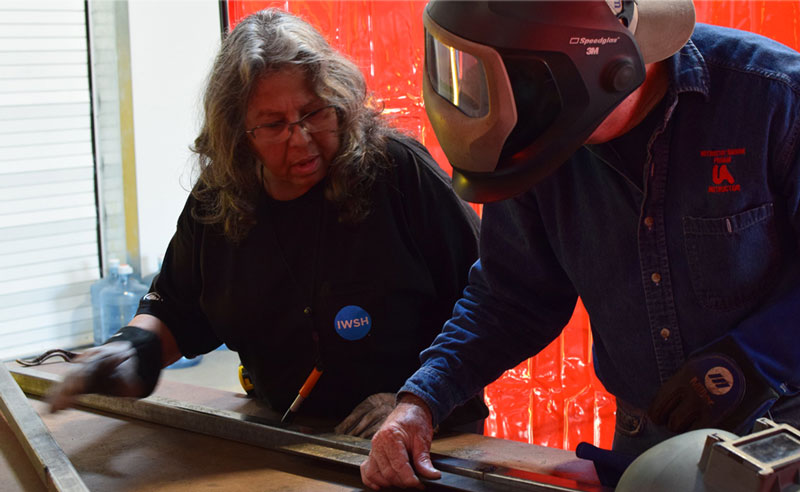 |
Submitted by International Water, Sanitation and Hygiene Foundation (IWSH) The International Water, Sanitation and Hygiene Foundation (IWSH) is excited to launch the Wash Station Challenge 2021, a new collaboration with the DigDeep Navajo Water Project, the United Association of Journeymen and Apprentices of the Plumbing, Pipefitting and Sprinkler Fitting Industry of the United States and Canada (UA), and Ferguson. The Wash Station Challenge was launched online Tuesday, June 1. Assembly projects are being hosted at 10 participating UA locals nationwide, where a series of mobile wash station facilities are being built that have been designed to provide a month’s worth of non-potable water for daily hand-washing and general hygiene for a family of six. Once completed, the wash stations will be shipped to designated DigDeep staging points on the Navajo Nation. DigDeep teams will then deliver, install and maintain the wash stations at sites that will initially include community health service facilities, chapter houses, and farms. “A popular saying among IWSH volunteers is “It’s not WHAT we do, but WHY we do it,” said IWSH Managing Director Seán Kearney. “This thinking remains front and center as we launch this new project: these new hand-washing stations are going to provide further hygiene capacity for Navajo people and community sites that are currently without and help further protect general public health and safety in the face of the ongoing coronavirus pandemic. So, that is the ultimate ‘why’ behind this Wash Station Challenge effort.” COVID-19 has hit the Navajo Nation particularly hard, registering some of the highest infection rates in the United States. Lack of running water has been a major factor, limiting residents’ ability to wash their hands regularly to prevent the virus from spreading. Against this backdrop, IWSH and DigDeep teams have worked together to design a wash station facility that will now become the focus of this innovative new project, being produced by skilled volunteers simultaneously at multiple locations across the United States. “The Wash Station Challenge 2021 with IWSH felt like a natural evolution in our longstanding partnership to provide emergency solutions in response to the pandemic,” said George McGraw, DigDeep founder and CEO. “The addition of these outdoor hand-washing stations in densely populated community centers is timely and necessary. Hand washing is still a critical step in sanitation and stopping the spread of the virus. These hand-washing stations are a stop-gap solution as we continue our work to install running water inside people’s homes.” Two wash station models have been developed — a grid-powered version that uses a 120-volt trough-type heater that sits inside a 210-gallon (795-liter) water tank, and an off-grid version that incorporates a 12-volt circulating pump and a timer. The pump is set on a timer to circulate the water and keep it from freezing, which is vital for wash stations that must perform through winter conditions in the most remote and exposed parts of the reservation. IWSH partner and sponsor Ferguson is generously donating materials for the assembly project, making them available for the 10 participating UA locals at Ferguson branches across the country.
Volunteers working on the units will bring skills including plumbing, welding, basic carpentry and/or electrical, mechanical assembly of various components, and the ability to read, comprehend and build to design drawings and specifications. In particular, the program aims to involve up-and-coming apprentices. The 10 participating UA locals and training centers across the United States are:
“This IWSH project offers the United Association the opportunity to stand on the motto, ‘The Plumber Protects the Health of the Nation,’ ” said UA Assistant Director of Education and Training Raymond Boyd. “Our UA locals are proud to utilize our trained men and women to assist the Navajo Nation with this critical need. We really must start paying attention to our surroundings, as many of our fellow citizens are struggling and could use our help. These wash stations are going to have an immediate impact, providing non-potable water for hygiene, which will ultimately cut down on the spread of disease and virus. The 10 United Association locals that are participating are so proud to be a part of this amazing IWSH project.”
Updates from the project will be shared via IWSH social media channels using the hashtag #WashStationChallenge. Visit www.iwsh.org for more information on The International Water, Sanitation and Hygiene Foundation.
|
 |
P-traps may be providing an ideal breeding ground for bacteria growth, according to a new study published by the UK's University of Reading. In the largest study of its kind conducted outside of hospitals, samples were taken from 123 university sinks in non-clinical settings, from restrooms in teaching, research and social spaces. The plumbing area found beneath sinks revealed microbial communities dominated by a group of bacteria called Proteobacteria, including pathogens such as salmonella and e. coli, “although the proportion of bacteria from that family was low”. “The mantra to ‘wash your hands’ to fight coronavirus transmission has highlighted the importance of not only good hand hygiene, but also the need for well-designed and regularly cleaned sinks,” said Dr. Hyun Soon Gweon, a lecturer in Bioinformatics for Genomics at the University of Reading and a corresponding author of the study. “It is possible to spread bacteria to the surrounding areas of your sink, where they can grow and persist.” “This means that we need to be very aware that what we are putting down our sinks is affecting the bacterial community underneath,” said Zoe Withey, lead author and Ph.D. researcher at the University of Reading. “These areas may not be reached during routine cleaning, and this could lead to communities containing hardier, resistant microbes.” Human skin was identified as a primary contributor of the bacteria. Below-sink strainers were found to have higher concentrations of Moraxellaceae bacteria, while P-trap sinks had higher amounts of Burkholderiaceae. Read the study here: https://onlinelibrary.wiley.com/doi/10.1002/edn3.196 |
DATES FOR DIARY IAPMO 92nd Annual Education and Business Conference - Virtual DesignBuild Kitchen & Bathroom Indonesia Montreal Fall Home Expo WPC’s Conference 2022 Contact secretariat@worldplumbing.org to provide an event report or request listing of an upcoming event. |
|
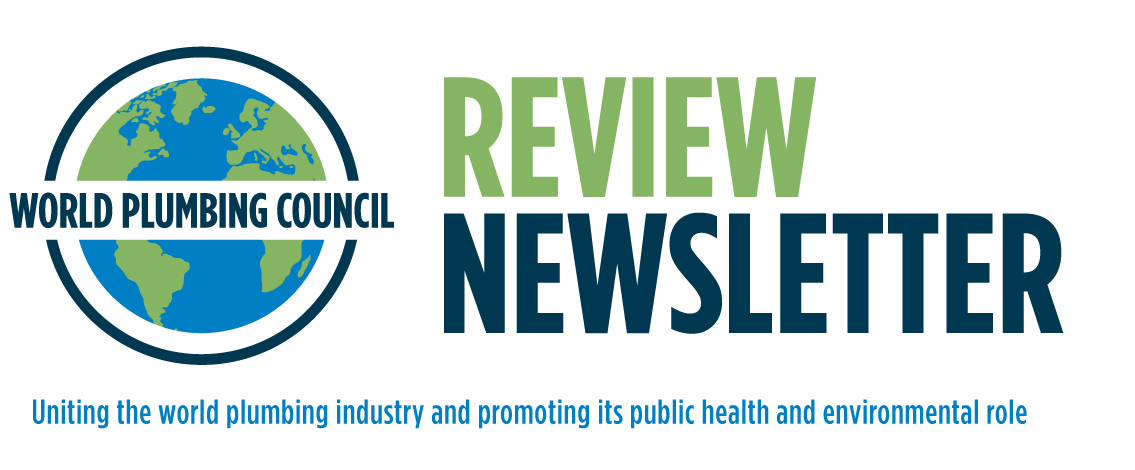
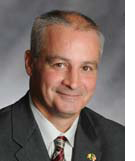 Greetings to all WPC members.
Greetings to all WPC members.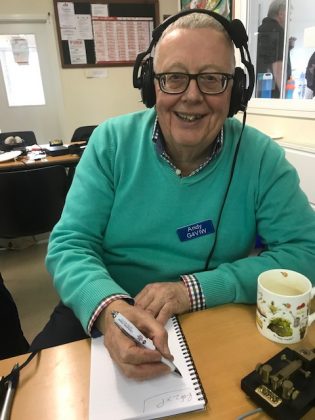 Andy was a founding Executive Board director of the WPC and held the office of secretary from 1996-2008. In 2011, the WPC Executive Board bestowed him its highest honor, the Distinguished Service Award. Andy was a driving force behind the WPC forging a close working relationship with the World Health Organization and subsequent joint publishing of “Health Aspects of Plumbing,” a critically important document that illustrates the important work undertaken by the plumbing industry to ensure public health and safety.
Andy was a founding Executive Board director of the WPC and held the office of secretary from 1996-2008. In 2011, the WPC Executive Board bestowed him its highest honor, the Distinguished Service Award. Andy was a driving force behind the WPC forging a close working relationship with the World Health Organization and subsequent joint publishing of “Health Aspects of Plumbing,” a critically important document that illustrates the important work undertaken by the plumbing industry to ensure public health and safety.